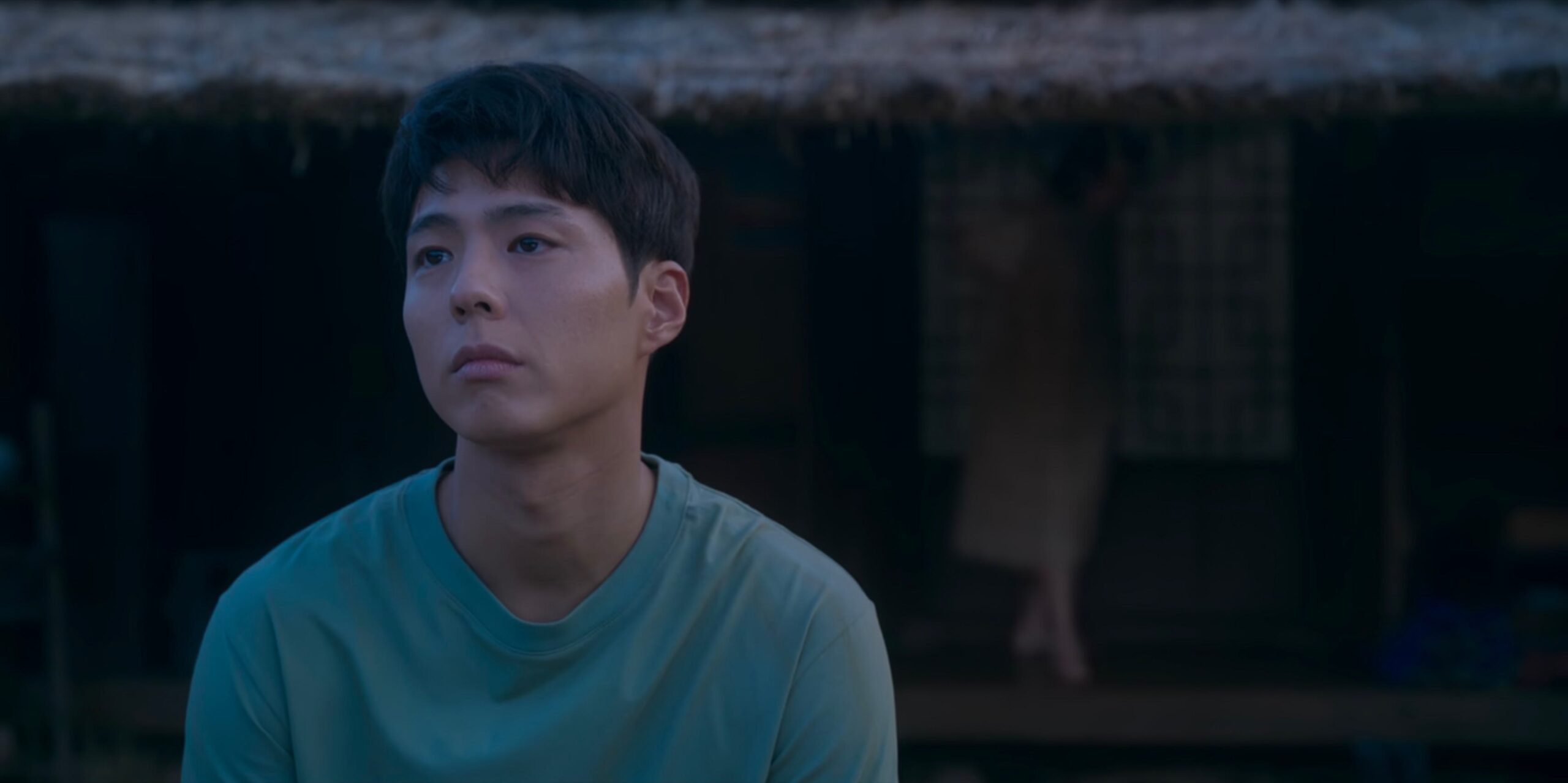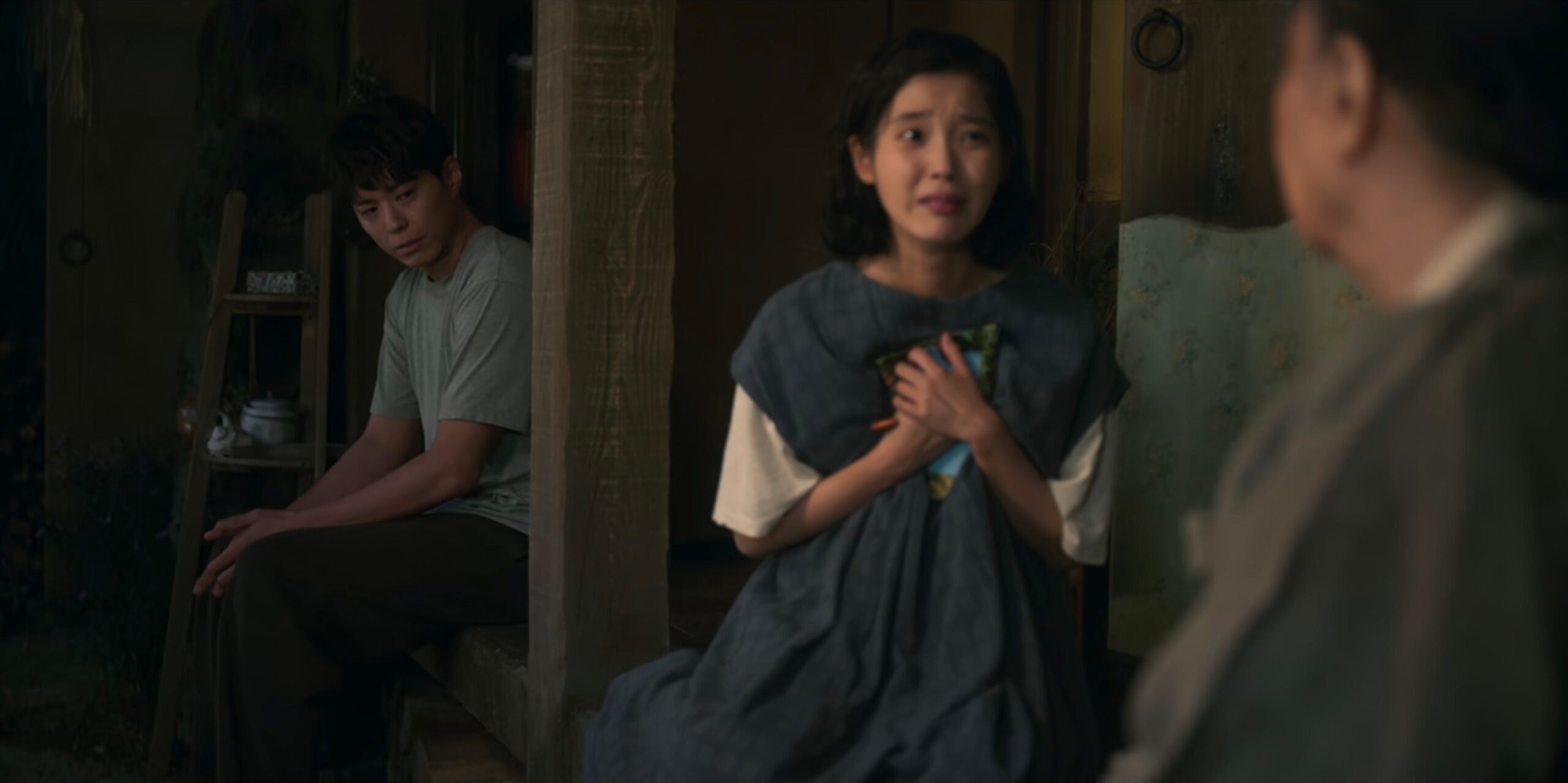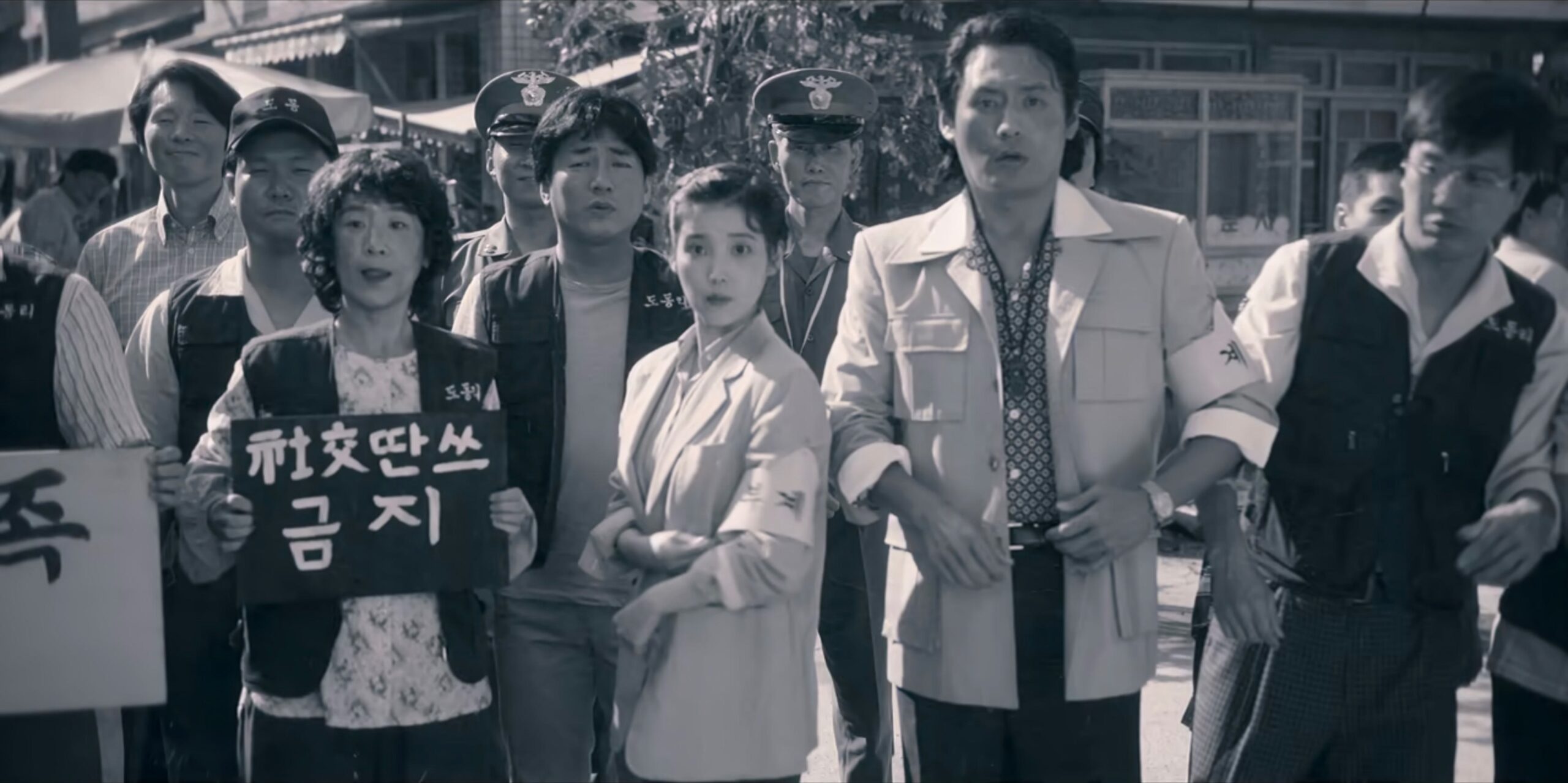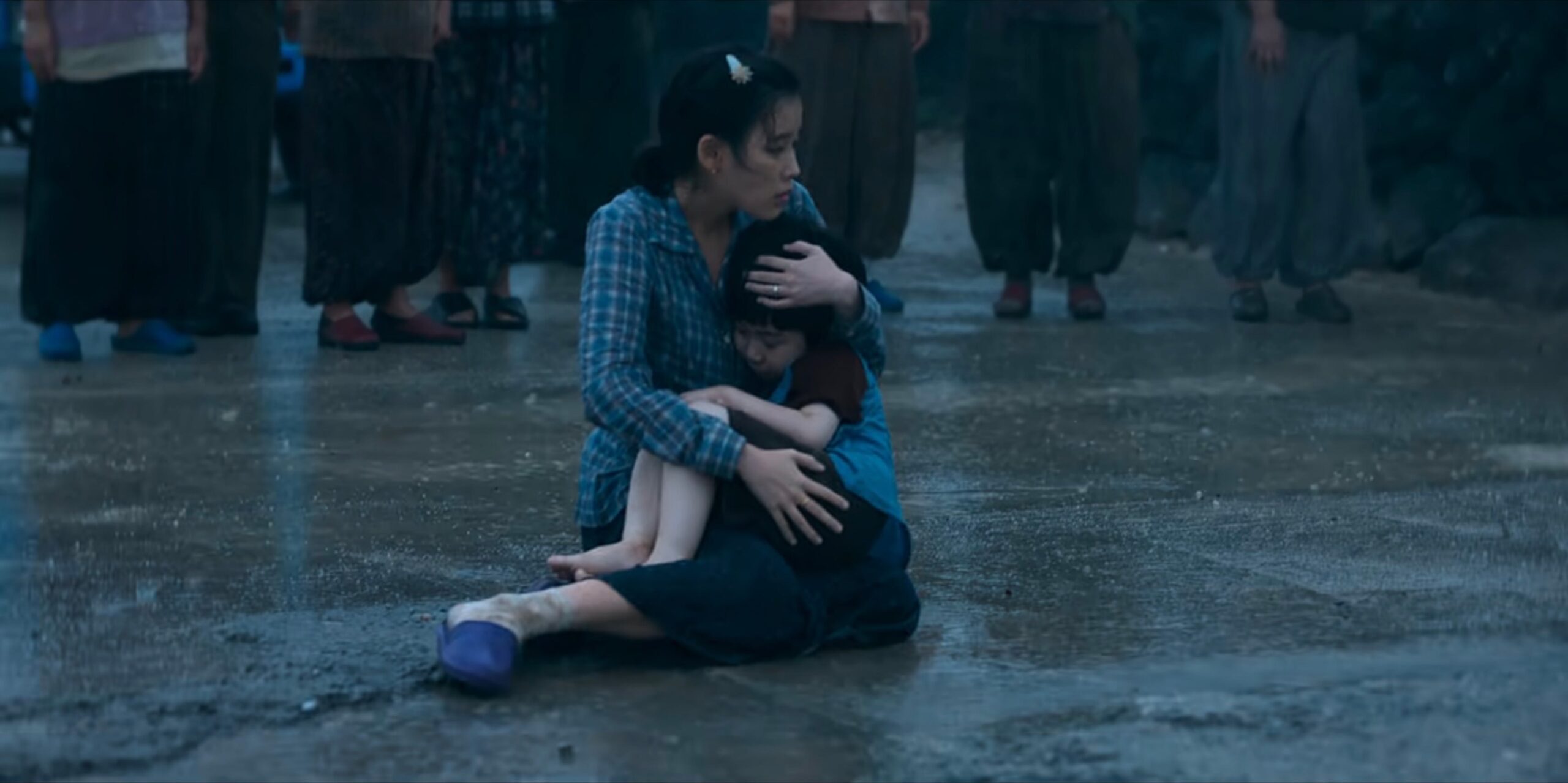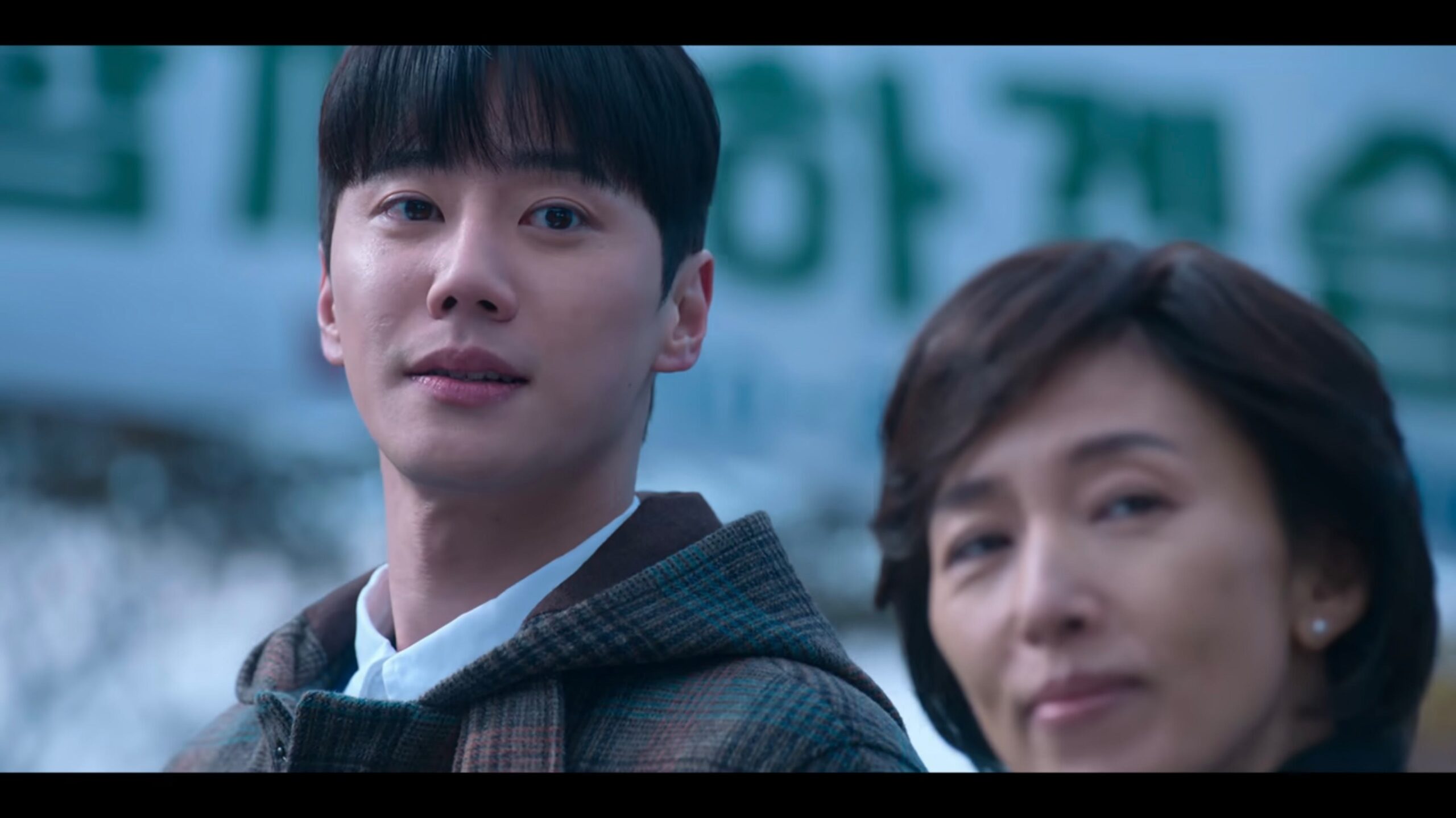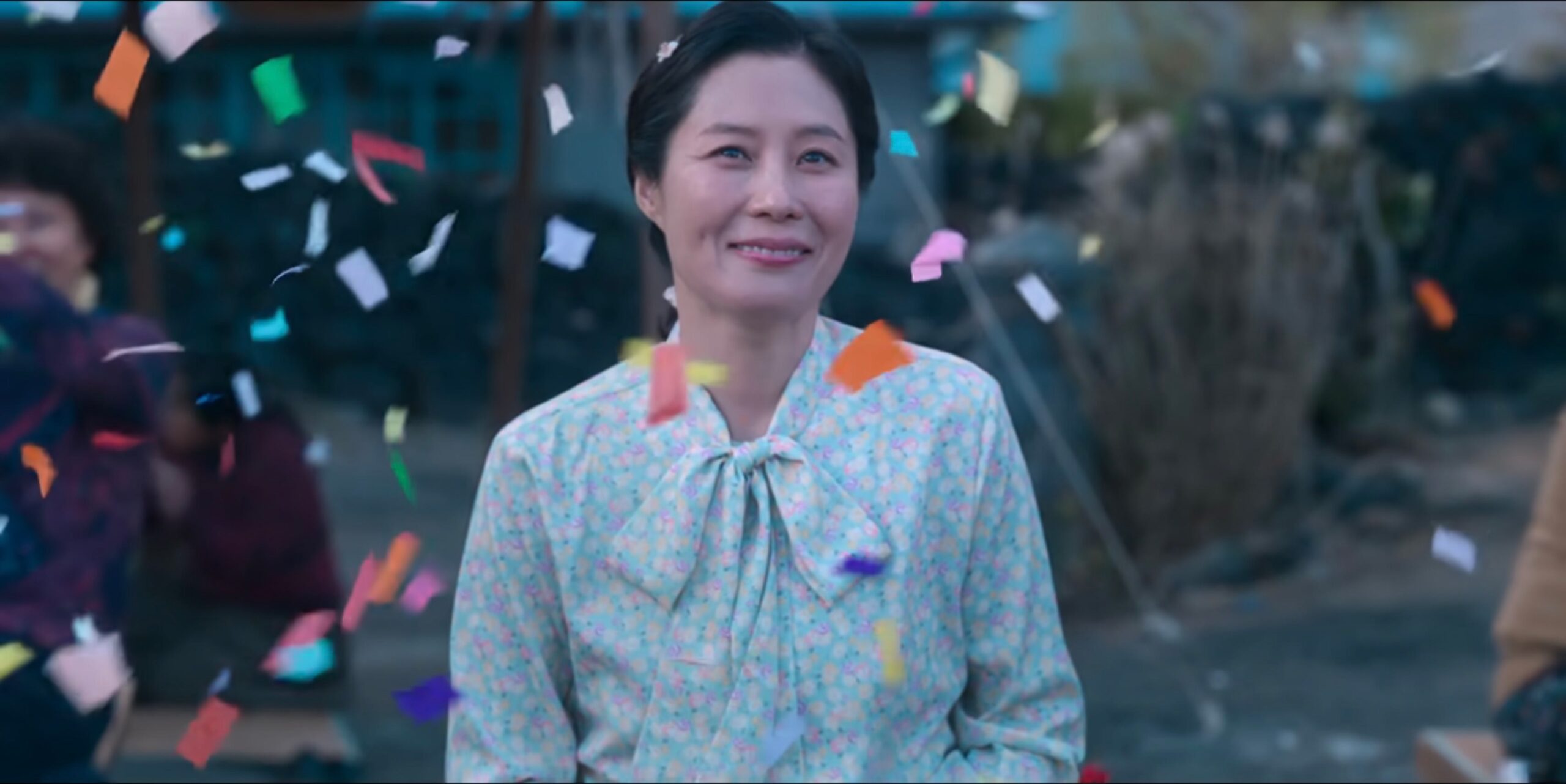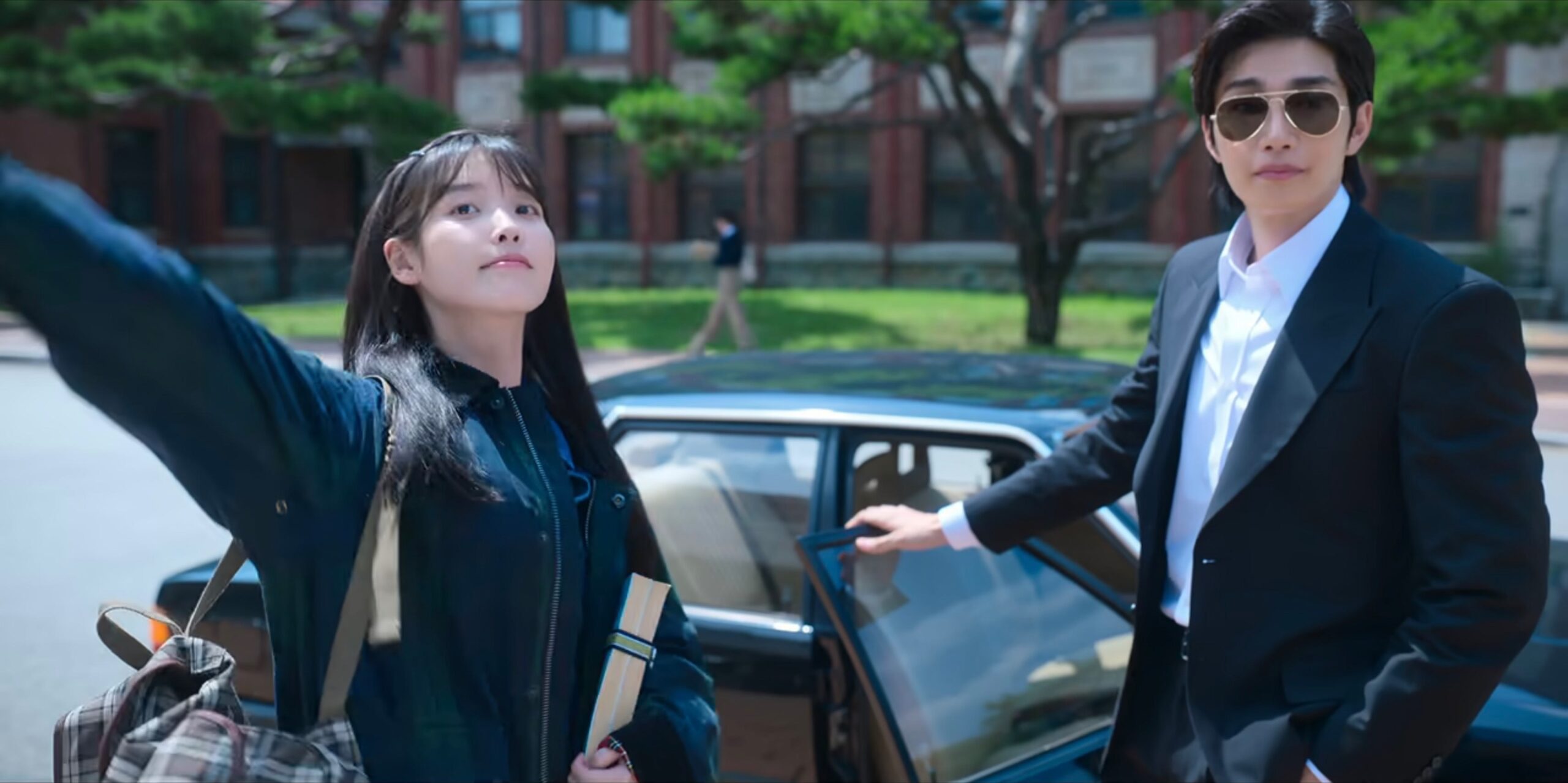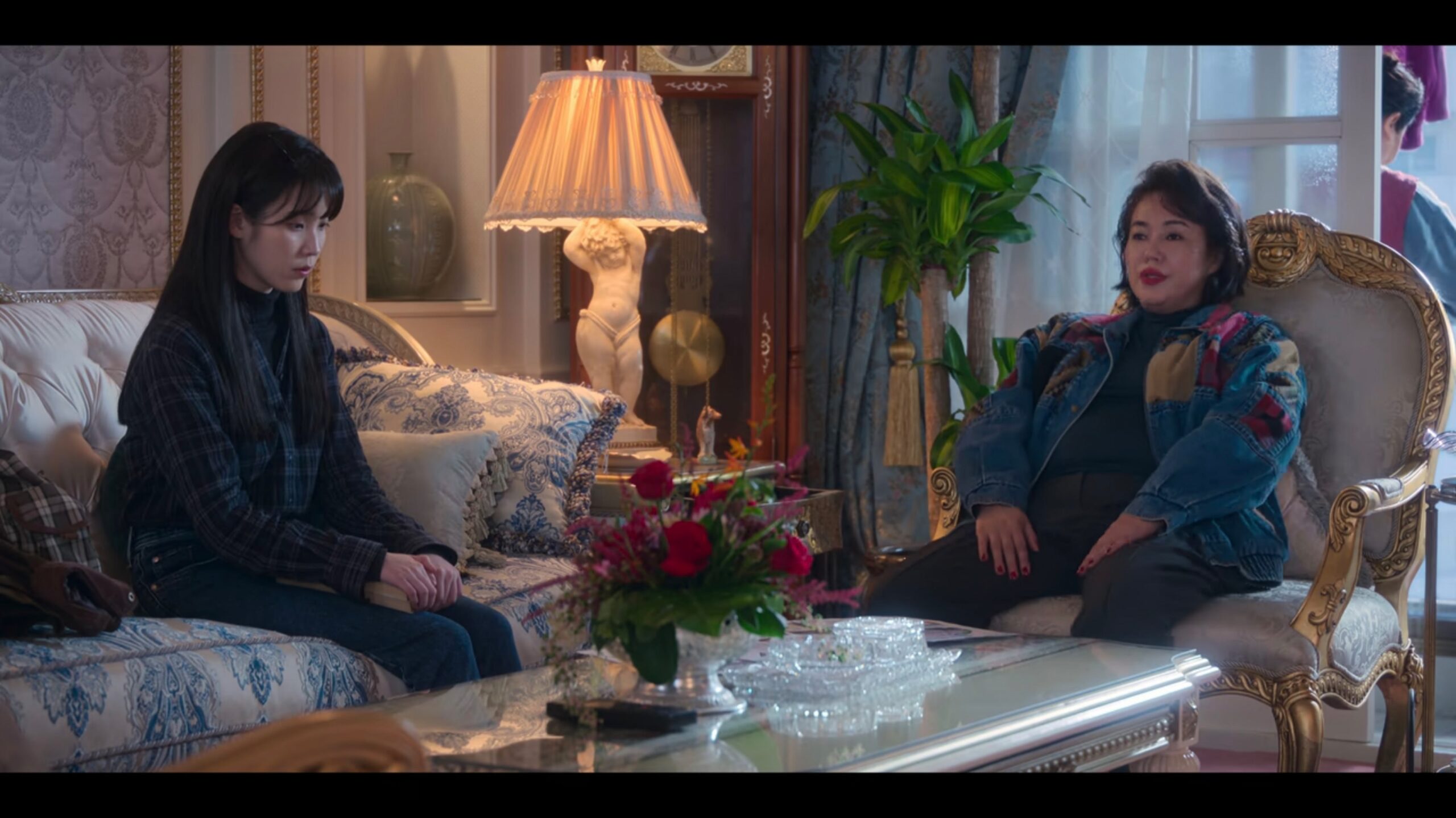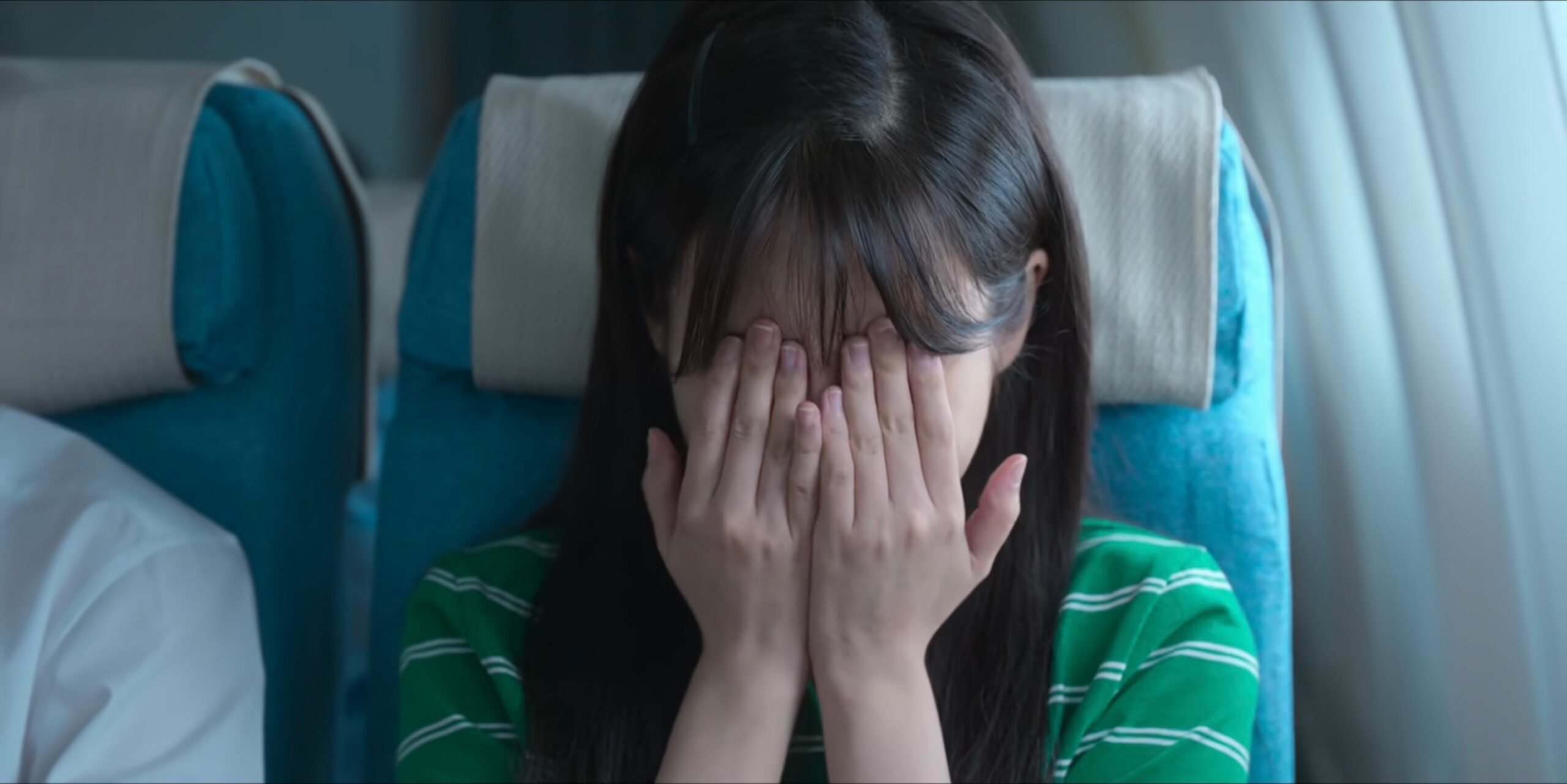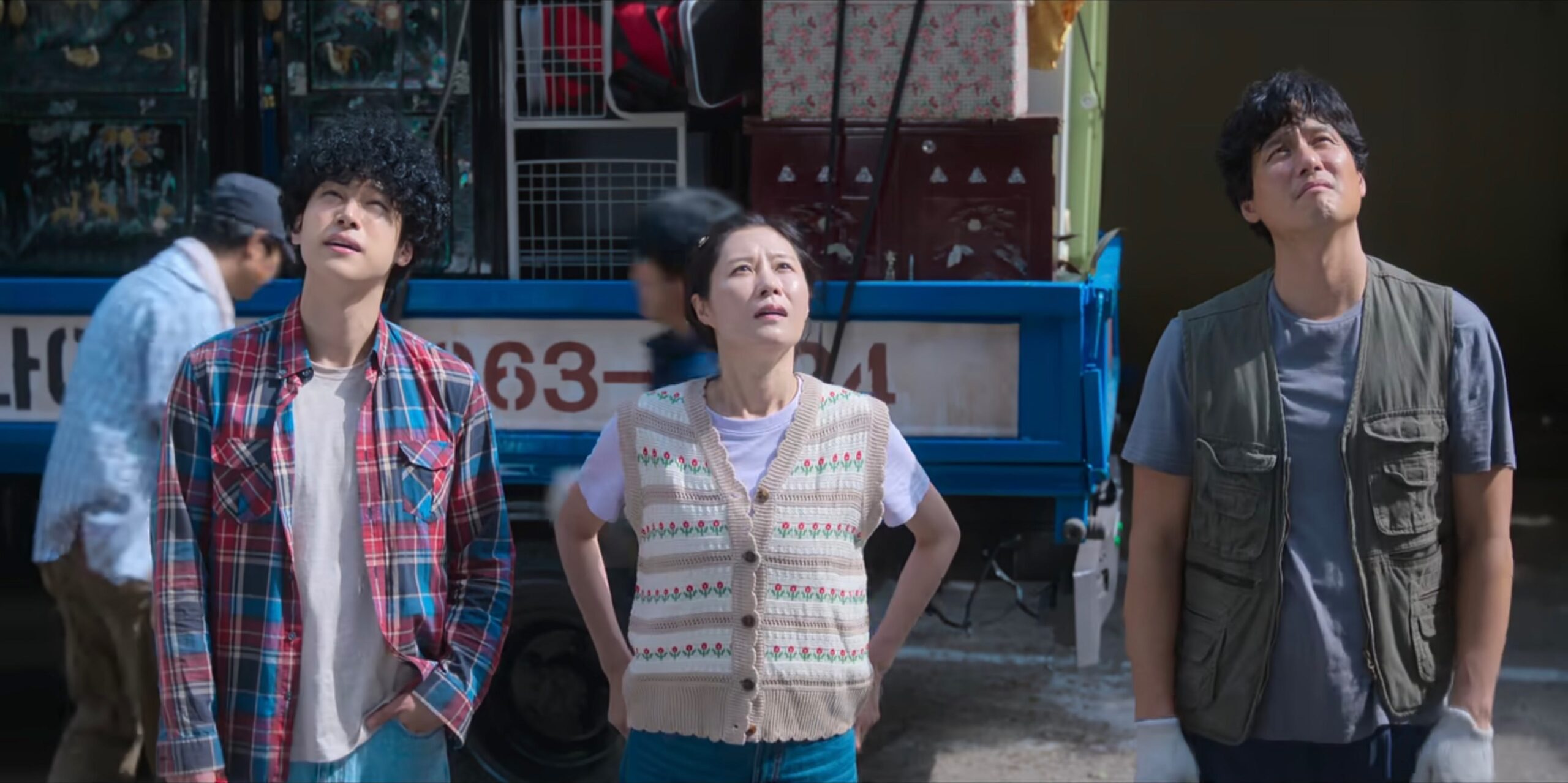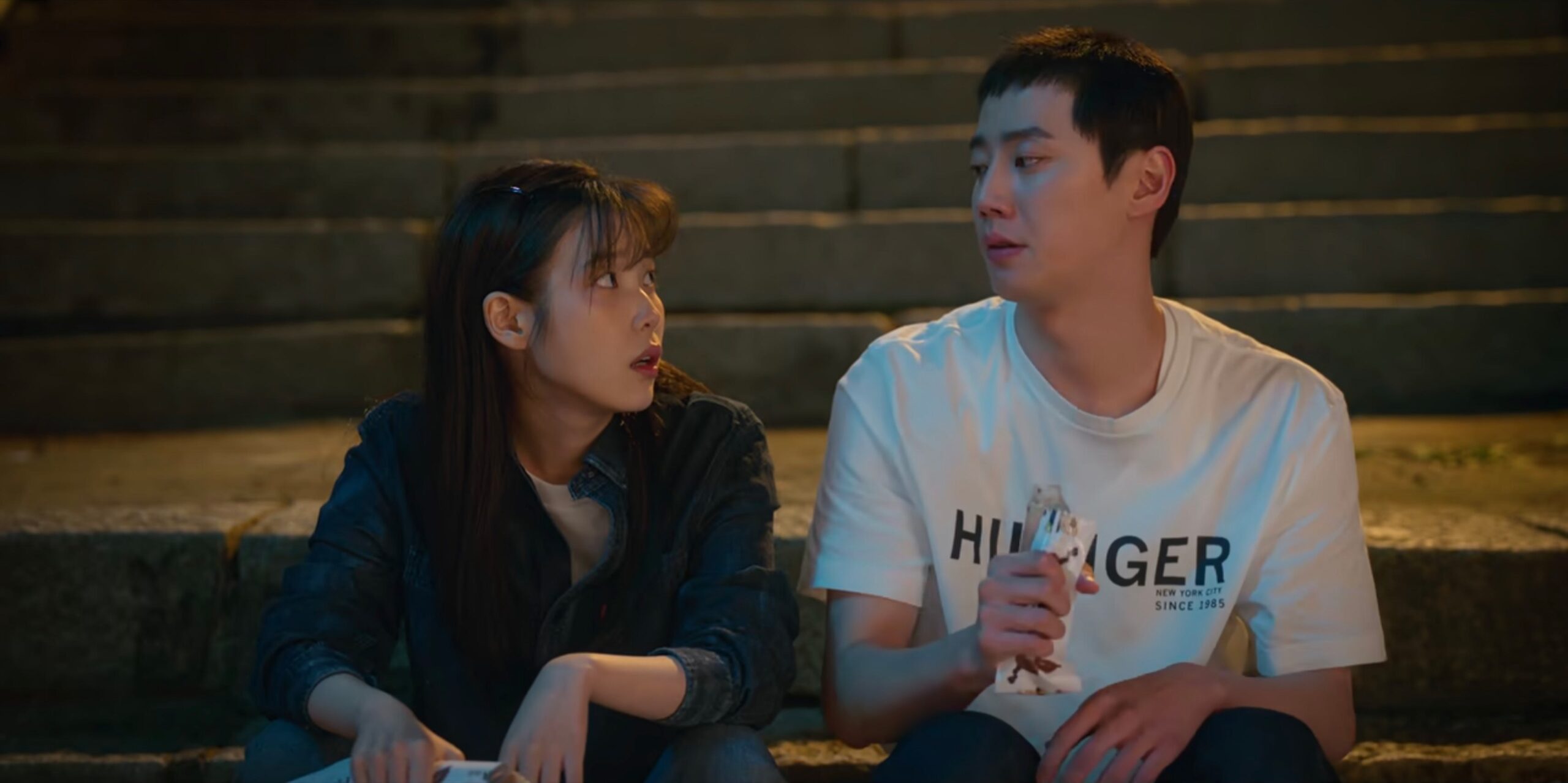When Life Gives You Tangerines: Episodes 5-8 » Dramabeans
When Life Gives You Tangerines: Episodes 5-8
by Dramaddictally
The second volume is even better than the first, as our grown leads learn about parenthood, sacrifice, and major loss. With time marching on, we center on the story of our couple’s eldest child — their daughter — and the stifling pressure to succeed when you know generations of women broke their backs (and their dreams) to get you where you are.
EPISODES 5-8
This is shaping up to be the greatest drama about recent history that I’ve seen since Answer Me 1988. It’s got that same sensibility and tone that lets you cry and laugh at the same time, where you’re not even sure if you’re crying because it’s so sad or so sweet. And the reality is that it’s both, all the time. Because it’s capturing something real about life.
When we ended last time, Ae-soon had just stood up for her husband against an abusive boss. The problem when we start our “summer” segment is that Gwan-shik is now out of work and he doesn’t know what to do with himself. As the son of a fisherman, he’s been working since he could walk, basically, and Ae-soon is watching him wither away into depression at home.
As the rice jar gets lower, Ae-soon makes a visit to her paternal grandmother (Na Moon-hee), where she kneels and cries but can’t utter the words to ask for help. She leaves emptyhanded and cries at home, telling her husband that she thought once you grew up, you’d naturally learn how to do all the things adults do. She’s overwhelmed as a first-time parent and wife and wonders if everyone else has life under control.
The drama dives back into its theme of female survival across generations and not long after we see Grandma at Ae-soon’s house, handing her everything she has to her name — which turns out to be a lot (she’s been stashing money since before the war). She tells the young couple to buy a boat, so that Gwan-shik can be his own captain, and the pair cry and say they’ll make her proud.
We see a flashback to right before Ae-soon’s mother died where she’s asking this grandmother to help out Ae-soon just once. She’s a proud kid, Gwang-rye says, she won’t ask for help easily. So, if she ever asks, it means life has gotten unbearable. Both women are in tears, and Gwang-rye pleads: help her out like you would your own son. (The subtext is that the money is supposed to go to the eldest grandson — not a granddaughter — so what Gwang-rye is asking is bigger than it might initially sound.) Grandma says she will, and now she’s living up to her word.
Gwan-shik buys the boat and on the day they’re inaugurating it, Ae-soon goes into labor with baby number two (a boy). By 1974, Gwan-shik has made enough money to buy back Ae-soon’s mother’s house for them, and the family of four moves into their own digs for the first time. And by the time their third baby is born, Ae-soon is even driven to the hospital by a neighbor who has a vehicle (rather than hauled in a wagon by her husband).
Time starts skipping along and in 1978, Ae-soon becomes the first female deputy chief of their town. Unfortunately, the chief she has to work beside is the jerk she was supposed to marry (the one that abused Gwan-shik). Still, it’s a big deal to have a woman hold that office. Plus, it reminds Ae-soon that she didn’t marry for money, she married for happiness, and it paid off.
There’s a small breakthrough moment when Gwan-shik asks Ae-soon to board his boat to paint the name. But it’s “bad luck for women to board boats” and so she refuses. Hearing the conversation, the young Geum-myeong starts to hop on and Ae-soon pulls her back. But then, she realizes she can’t tell her own daughter she’s bad luck, and she lets her go — with Gwan-shik happy to have her on board. It’s summer, they’ve got their own house and livelihood, and the couple couldn’t be happier.
But with three young kids at home, Ae-soon is struggling to keep up. On a day when a typhoon is brewing, Geum-myeong goes to ride her bike and has a minor accident. Ae-soon hears this and runs out to find her daughter, leaving the two boys at home. Geum-myeong is fine, but when Ae-soon returns, both boys are gone. They find one of them immediately (the middle child), and then the whole village goes out in the wind and rain searching for the littlest one, who’s only three.
When they find him, he’s not alive.
Ae-soon sits on the ground, cradling her baby, wind whipping around her, asking why no one is calling an ambulance. Everyone is standing around her crying when Gwan-shik runs up, collapses to his knees, and wails. Ae-soon is blank-faced, in shock about the reality of what’s happening.
This event has repercussions for the whole family for the rest of their lives. Ae-soon suffers horrible guilt following the event, especially because the last thing she did was yell at her son for knocking over a candy dish before she ran out to find Geum-myeong. And the parents are in so much pain that they’re unwittingly ignoring their other kids, walking around like they’re dead themselves.
One day Gwan-shik realizes that Geum-myeong hasn’t showed him any of her perfect schoolwork and asks why. She breaks into convulsive sobs, saying it’s all her fault. If she hadn’t been riding her bike in the typhoon, this wouldn’t have happened. And at the same moment, Ae-soon learns that the reason her living son isn’t talking to her is not because he’s angry with her about the death, but because he too feels like it’s his fault. If he hadn’t left the house first, then his little brother wouldn’t have trailed behind him.
The parents suddenly realize they’re not the only ones living in pain and guilt and break out of the spell they’ve been under. Gwan-shik goes back out to fish, understanding he needs to keep working to support the lot. But still, he blames himself for the rest of his life.
When we hit 1987, we see that Geum-myeong takes after her studious mom, but in this new generation, the girl goes to college. SNU to be exact — which is a lot pressure. Not only is it the best university in the country, it’s also all the way in Seoul, and it’s Geum-myeong’s first time living in a city.
Her parents go with her to the admissions ceremony, where all the families are taking photos of their newly admitted smarty-pants kids — and one of those smarties sets his eyes on Geum-myeong instantly. This is PARK YEONG-BEOM (Lee Jun-young), and we see that his mother is the horrible (rich) mother-in-law that Geum-myeong was meeting with in last week’s episodes. (Meaning: these two are getting hitched sometime in the 90s.)
Of course, Gwan-shik hates him immediately and Ae-soon is all for him (I mean, she may have married a Park Bo-gum lookalike but she still has eyes). And the two kids start dating in Seoul, while Geum-myeong’s parents are far, far away. At the same time, Gwan-shik and Ae-soon are just as in love as they’ve always been, which, unfortunately, puts even more pressure on Geum-myeong to have a fairytale marriage, as well as to perform perfectly as the successful child who got out of Jeju.
As the nation starts preparing for the 1988 Olympics (as well as the vote that will return them to democracy), there’s a lot of political shakeup. First, the Olympics commission comes to their seaside town and starts overturning vendors’ stands at the fish market. The torch will run through there and be televised, and they’ve been told to get rid of anything unsightly.
The haenyeo argue back, but their words don’t get them far — especially with the jerk town chief on the government’s side. This is when we see how far Ae-soon has come from the literary girl who couldn’t put down a book to sell cabbage. As deputy chief, she strolls up to the conflict without saying a word and lays down in front of the trucks. As is the tone of the drama, it’s played for laughs, but the outcome is serious to the townspeople.
The next thing we know, Ae-soon is running for chief against the current guy who has the position. His MO is to badmouth her and bring up her “bad reputation” from high school. She ran off at 18 and got pregnant! he cries. But the oldest woman in the crowd replies, “And now that kid’s at SNU.” (So satisfying.)
Meanwhile, Gwan-shik (now played by Park Hae-joon) is covertly campaigning for her amongst the fishermen. They make fun of him, though. Doesn’t he have any pride? How could he let his wife be the first female chief? What would that make him? But of course, we know Gwan-shik has no problem being First Lady if it means Ae-soon finally gets to move from VP to prez.
And she does. Since the former chief was running a smear campaign, it didn’t look good when he was caught putting the moves on someone who was not his wife. So, Ae-soon gets her dream of occupying the top position, and at the election party, she gets drunk and dances in a way that embarrasses her teenage son, YANG EUN-MYEONG (Kang Yoo-seok). “Let her have fun,” Gwan-shik says. And it becomes totally clear just how removed their kids are from the hardships of the parents’ younger lives. Times have changed way too much.
Back in Seoul, Geum-myeong is on her own again because Yeong-beom has gone to do his military service. She broke it off with him before he left, and we see her get into a fancy car with a man who looks suspiciously like Kim Jae-young (I had no idea this cameo was coming and I about jumped out of my chair).
And although rumors are circulating about what she’s doing with him, we quickly learn that he’s a driver for an extremely wealthy, but not too bright, high school student that Geum-myeong is tutoring. A headline tells us that private tutoring has been banned, and illegal services have cropped up in the oddest places, even moving cars. So, Geum-myeong is working illegally to pay her college expenses, and the rich girl’s mom is about to take full advantage of that fact.
The next time that Geum-myeong goes to the girl’s house to tutor her, the mother tells her that they’ve been searching all over for a smart student who looks just like her daughter. She wants Geum-myeong to take the college entrance exam in her daughter’s place. She may not have smarts, but she has money; they can help each other out. If the daughter gets into a top-three school, she’ll buy Geum-myeong a three-bedroom apartment in Seoul.
It just so happens that Geum-myeong has not received a scholarship for this term and she’s being kicked out of the dorms. The rents are so expensive that she’s not sure she’ll have a place to live. She could really use the payoff, but at the same time, she’s ethical to the core. She turns down the “offer,” saying she couldn’t bear it if the daughter got into a school and it bumped someone like Geum-myeong from getting in.
The woman insults her, muttering that poor people have nothing but pride, and Geum-myeong leaves the apartment — taking with her the money she’s owed. But on the way out of the building, the security guard stops her and says the woman reported that she stole some money along with a diamond ring. Geum-myeong tries to give him the money, but without producing the ring, she’s taken to the police station.
The police believe the rich woman over Geum-myeong — because Geum-myeong was working illegally as a tutor (i.e., she’s poor enough to need the money that badly, so she must be a thief). When she’s released from the station, she calls her mom from a payphone, but can’t bear to tell her what happened. She learns that her father, at that very moment, is in Seoul waiting to see her. She feels angry at her mom for being poor (which I read as terrible pressure to succeed without all the resources to do it). And at the same time, she’s angry that her dad has been sitting in the cold waiting for her (he’s showing her care when she feels like she’s letting them down).
When she meets up with Gwan-shik, he takes her to eat and she tells him she lost her job, didn’t get a scholarship, and will have to leave the dorms. He says that all the best minds from the whole nation are compiled in one university, she can’t always be perfect — he wouldn’t even be able to share a table with them. But what was meant as comfort just feels more overwhelming to Geum-myeong (who’s sitting at the table for her whole family).
She’s experiencing social mobility — moving up in class position — but she feels greedy and selfish for wanting all the things she wants (while we see the rich people around her feel entitled to those very same things for no good reason either). Her dad tells her to find an apartment, he’ll catch more fish to pay the rent. He wants her to do everything she wants, just don’t date a soldier or get involved in the protests. He’s worried she’ll be beaten or killed (and this where those other political shakeups I was talking about come in).
They’re sitting at the bus station waiting for Gwan-shik to board. And the election is on the TV. As everyone celebrates the results around them, father and daughter look sad, and Geum-myeong continues to cry. Her father came all the way to Seoul just to see her, and she feels guilty (the pressure to be perfect is so much it’s like she can’t stand displays of care or concern because she feels she can’t live up to it).
When Gwan-shik finally gets on the bus, he waves from the window and Geum-myeong is reluctant to wave back. She thinks of the phone call with her mother earlier, when she said to be nice to him while he’s there. “He wanted to see his eldest and his love has been one-sided for twenty years.”
We see flashbacks to earlier scenes of when Geum-myeong was a toddler and she and Ae-soon happily waved goodbye to Gwan-shik as he left for work. Then we see Gwan-shik on the bus in Seoul, waving to Geum-myeong, and she turns into that smiling waving toddler again in his eyes. (I became such a sobbing, bawling mess during this scene, I had to pause the video because I couldn’t see through my tears.)
And while the father/daughter scene was about as heartfelt as they come, this drama still has mothers and daughters at its center. Which is why the conclusion left me even more of a wreck.
It starts when Geum-myeong is selected to do a study abroad in Japan based on academic merit, but doesn’t have the money to go. One of her professors really wants to send her and is offering to pay for the trip. Geum-myeong turns it down, says some polite things, and calls her mom to tell her how good it feels just to have someone want to do that for her.
Ae-soon starts asking how much the trip costs, and Geum-myeong won’t even tell her, assuming it’s out of reach (and also not wanting to be a burden). She realizes that while she can say such pretty things to the professor she’s grateful to, she can’t say nice things to the person she’s most grateful to in the world (her mother). They argue on the phone, both trying to do what’s right for the other, and resenting each other’s behavior the whole time. The voiceover says, “a kind-hearted mother gave birth to a kind-hearted daughter. They would always adore each other, and break each other’s hearts.”
In the end, the parents decide to sell their house and move to a small apartment in order to send Geum-myeong abroad. On the plane, and with a stack of cash in her bag, Geum-myeong cries the whole ride. We see Ae-soon standing in the street, looking up at the tiny place they’re about to move into, and smiling. She wanted so badly to study, and now she’s sending her daughter all the way to study abroad. She’s laughing (I’m sobbing). And that concludes the volume of summer.
I liked this set of episodes even better than the first. I didn’t mention it before, but the story is narrated by Geum-myeong. And while I loved the tall tales about her parents’ lives, as told through her eyes last week, I loved hearing the reality of her own life, told from the ground, even more. It’s got the same storytelling lynchpins (jokes within sadness, and parallels between the changing characters and changing times), but it gives up the heroic third-person protagonists for a narrator that understands her own psychology and is closer to her own pain. For me, it feels like even the storytelling is modernizing as it goes along.
And I’m stuck on this thread of generations of women who are tough on the outside but also kindhearted and trying to take care of each other. It’s tender and painful because they can’t protect each other from all that hurts. And for Geum-myeong, even if the physical realities of her parents’ life are not the same for her, the emotional burden she’s taken on by living out her parents’ dreams is oppressive at the same time it’s emboldening.
At the end of this installment, we see a return to democracy (to “freedom”) while Geum-myeong is entering the world to live out her dreams freely. There are obvious constraints in both situations, but it’s the beginning of something, and the alignment between the personal and the political is continuously well done in this drama. I’ll be pacing around until next week, waiting for the third volume, where the “fall” season will take us into a time of transition, both for the country and for our characters.
RELATED POSTS

